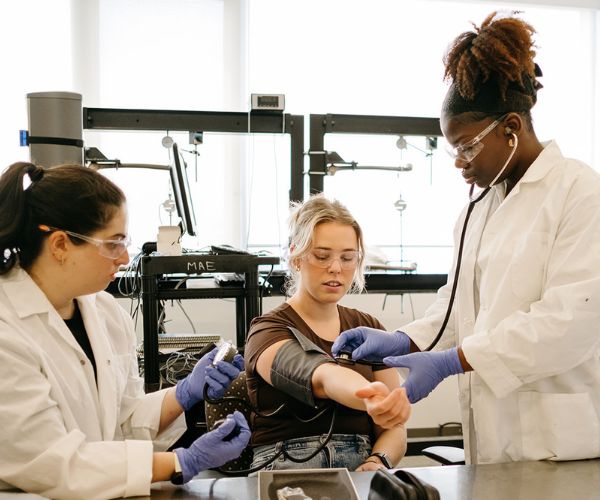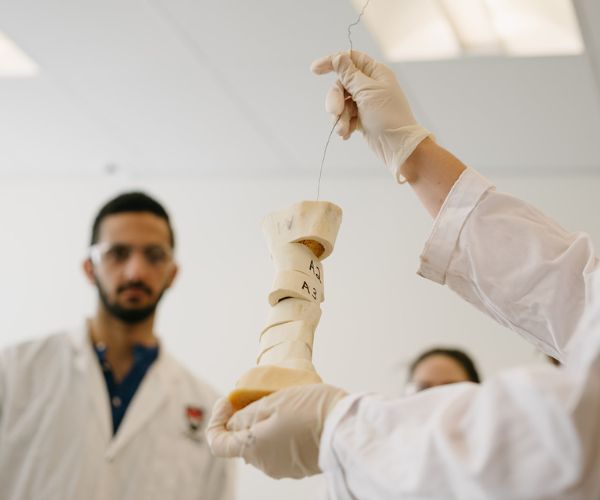Visit Carleton! Book your tour today.
Program Details
The Faculty of Engineering and Design’s Biomedical and Mechanical Engineering program in the department of Mechanical and Aerospace Engineering integrates life sciences with traditional mechanical engineering topics. Graduates from the program can work in both medical and engineering fields.
The Biomedical and Mechanical Engineering program is fully accredited by the Canadian Engineering Accreditation Board, allowing graduates to meet the educational requirements for registering as a professional engineer.
The program provides students with a skill set that enables the development of advanced components, systems and techniques for biomechanical applications that are crucial to modern health care. The curriculum is designed with an emphasis on the development of practical and problem-solving skills based on hands-on laboratory and design work.
Our Biomedical and Mechanical Engineering program includes the prerequisites needed for entry into Ontario Medical Schools.
Work Experience
A Co-op option is available. Co-op is the opportunity to get a head start on a career. Co-op work terms allow for the development of key employability skills, exploration of career options and graduation with tangible, workplace experience.

Get started in Carleton360 to receive tailored information on our programs, student services and community.

Career Outcomes
Explore your passions, refine new skills and discover the career that’s right for you.
With a foundation in mechanical engineering, Biomedical and Mechanical Engineering students will have the skills to work both in the biomedical engineering and mechanical engineering industries.

Sample Courses
ECOR 1046 – Mechanics
2D truss analysis (method of joints/sections). Normal stress/strain and shear stress/strain. 2D frames and machines. Internal loads – normal, shear and moment at a point. Shear and moment diagrams.
MECH 4013 - Biomedical Device Design
Medical Devices: the industry and its regulation. Design methodologies. Examination of specific medical devices: surgical equipment, orthopedic devices, rehabilitation engineering, life support, artificial organs.
Visit the Undergraduate Calendar to view a comprehensive list of course offerings for this program and discover the exciting things Carleton students are learning in the classroom!

